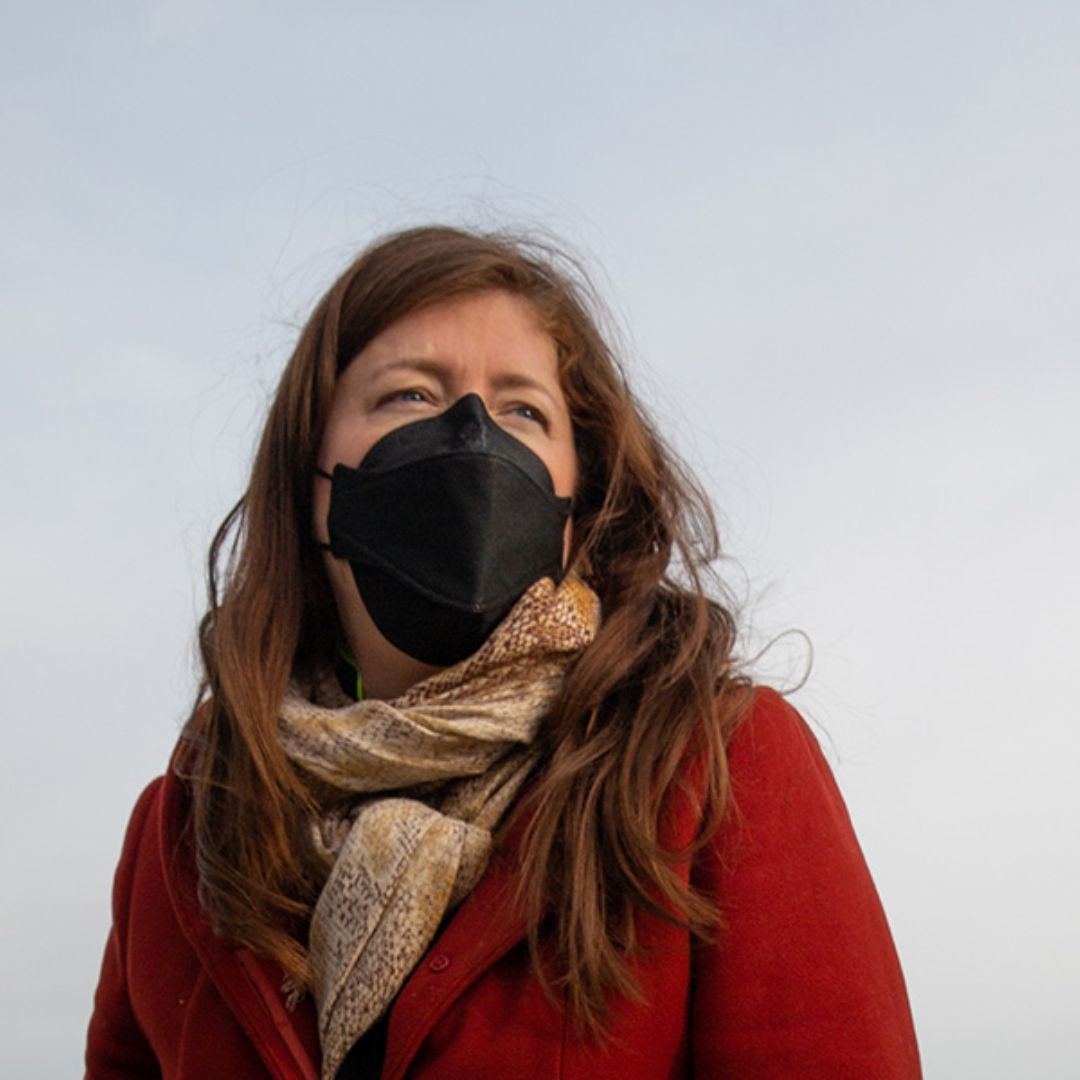Bee-Jay Realubit, registered nurse on the Renal Transplant Assessment Team (L), and Katrina Bongalon, Operating Room nurse at Toronto Western Hospital, were redeployed to work in the Hemodialysis Unit. (Photos Courtesy Bee-Jay Realubit, Katrina Bongalon)
In mid-April, Bee-Jay Realubit received an email that he was being redeployed. Bee-Jay, a registered nurse on the Renal Transplant Assessment Team at UHN’s Soham & Shaila Ajmera Family Transplant Centre, like many others, found his job put on hold because of the COVID-19 pandemic.
Around the same time, Katrina Bongalon, a recent graduate and new hire as an Operating Room (OR) nurse at the Toronto Western Hospital, received the same email.
Both were being redeployed to the Hemodialysis Unit to work in a completely different unit, role, and day-to-day life than they were used to.
“I was a little apprehensive and nervous,” says Katrina.
“I had started at UHN in September, and only became independent three weeks before redeployment.”
Hemodialysis staff are highly specialized and take almost seven weeks to fully orientate and become certified. To prepare them for their supporting role in the unit, Bee-Jay and Katrina, along with the other redeployed staff, underwent an expedited orientation, including online courses and a full day of virtual in-class modular training.
They were then connected to advanced practice nurse educators and were paired with “buddies” for their first shifts.
“Like with everything, you really get out of it what you put into it,” Bee-Jay says. “Coming to shift everyday with a positive attitude, being flexible, working as a team, and just focusing on the ultimate purpose of why you are there is essential.
“It was a good reminder of why I became a registered nurse and went into healthcare.”
Fear of the Unknown
Hemodialysis is a life sustaining treatment that can’t be put on hold, even during a global pandemic.
“We had to continue at full capacity,” says Denise Williams, Nurse Manager in Hemodialysis. “Our patients can’t receive treatment virtually, we have to always be open fully.”
During a normal week, the Hemodialysis Unit at Toronto General Hospital (TGH) sees over 300 outpatients, at least three times per week. Hemodialysis staff administer dialysis treatments both in the unit and throughout the hospital, in units such as the Intensive Care Unit (ICU) and the COVID unit.
In anticipation for an increase of COVID patients at the hospital, specifically in the ICU, the Hemodialysis Unit began to ask what this would mean for them. The solution was to have redeployed staff support the unit.
Always improving models of care
More than 1000 staff across UHN were redeployed during the pandemic. Of those, 23 nurses were redeployed to the Hemodialysis Unit. They came from UHN Surgery, Transplant, some outpatient clinics and the Nursing Resource Team (NRT).
Khaula Mangla, Director of Human Resources for TGH, worked with Denise to create their redeployment plan.
“I was amazed at the resiliency, flexibility, and positive engagement of many of our staff,” Khaula says. “In many situations, they had to be flexible outside their regular hours of work and environment, which probably was a bit anxiety inducing.”
COVID-19 came hard and fast and was a learning curve in many ways. Khaula says that Human Resources has received feedback through the redeployment process and just sent out a survey to all redeployed clinical staff to understand what worked and what didn’t.
“We have learnings we need to reflect on so that we can improve our models of care and redeployment for staff moving forward,” she says. “We are always thinking of how we can do better.”
Pandemic has forced everybody out of their ‘comfort zone’
Bee-Jay and Katrina are very thankful for the help they received on the Hemodialysis Unit.
“Without the support and willingness to help from the hemodialysis nurses and the entire department, those of us who were redeployed could not have succeeded there,” Bee-Jay says.
While Bee-Jay and Katrina are now back working in their trained roles, they took with them new skills in patient-facing care – which they didn’t have the opportunity to experience before COVID.
“The pandemic has forced everyone out of their comfort zones,” says Bee-Jay. “But, the way we handled these unprecedented situations is really a testament to the spirit of TeamUHN.
By working together, we can rise above the most difficult moments and the darkest of days.”


